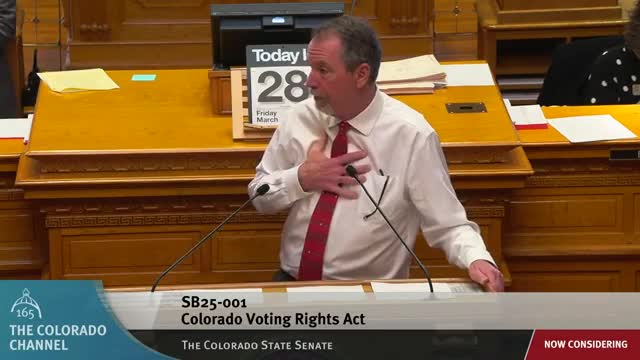Senate approves receivership tool for persistent warranty‑of‑habitability violations
Get AI-powered insights, summaries, and transcripts
Subscribe
Summary
The Senate passed Senate Bill 20 after adopting committee amendments to allow a court-appointed receiver to repair multi‑family properties with a pattern of habitability violations; the bill includes procedural protections and a preponderance‑of‑the‑evidence threshold for appointment.
Senate Bill 20, aimed at giving courts and local governments a tool to address extreme and persistent warranty-of-habitability violations in multi‑family residential properties, passed the Senate on March 28 after the body adopted committee amendments and debated multiple floor amendments.
Sponsor Senator Gonzales said the bill is narrow and intended to address the most severe and serial cases of landlord neglect that leave tenants living in hazardous conditions and that other existing remedies were insufficient in extreme cases. “This is not a casual remedy,” she said. “Receivership is intended only where a pattern and practice of violations exists and multiple steps have failed.”
Nut graf: The measure allows a duly elected local government or the Attorney General, after investigative steps, to petition a district court for appointment of a receiver for a multifamily property if the court finds, by a preponderance of the evidence, that a pattern of violation exists and remedies have not been implemented. The receivership permits a receiver to bring the property into compliance, apply rents to repairs and operate the property temporarily. The bill adds procedural safeguards including court oversight and timelines for dissolution.
On the floor senators debated protections for property owners, financial mechanics for receiverships and how tenants’ repairs would be prioritized. Senator Liston and others warned the bill could chill housing investment and urged higher evidentiary standards; the Senate rejected an amendment to raise the appointment standard to “clear and convincing” evidence. Another amendment proposed to require receivers to apply collected rents to mortgage payments; that amendment was not adopted.
Committee and floor amendments narrowed the minimum receivership time and clarified which liens must be satisfied before dissolution, and included bond and entry requirements to ensure the receiver is accountable. The Senate ultimately passed the bill with the preponderance-of-evidence standard and judicial procedures intact.
Vote: The Senate adopted committee changes in committee-of-the-whole consideration and then passed the bill on third reading.
